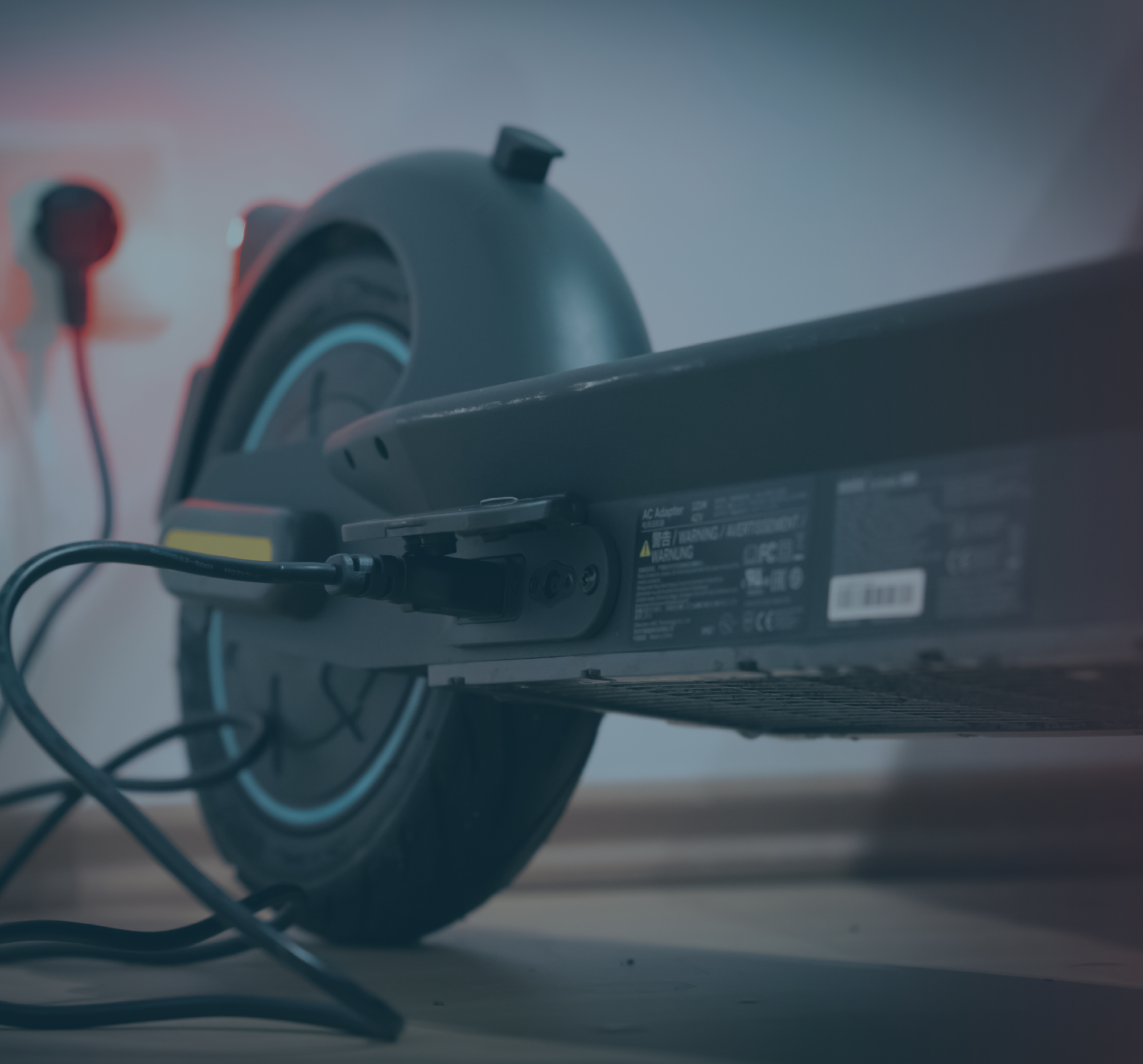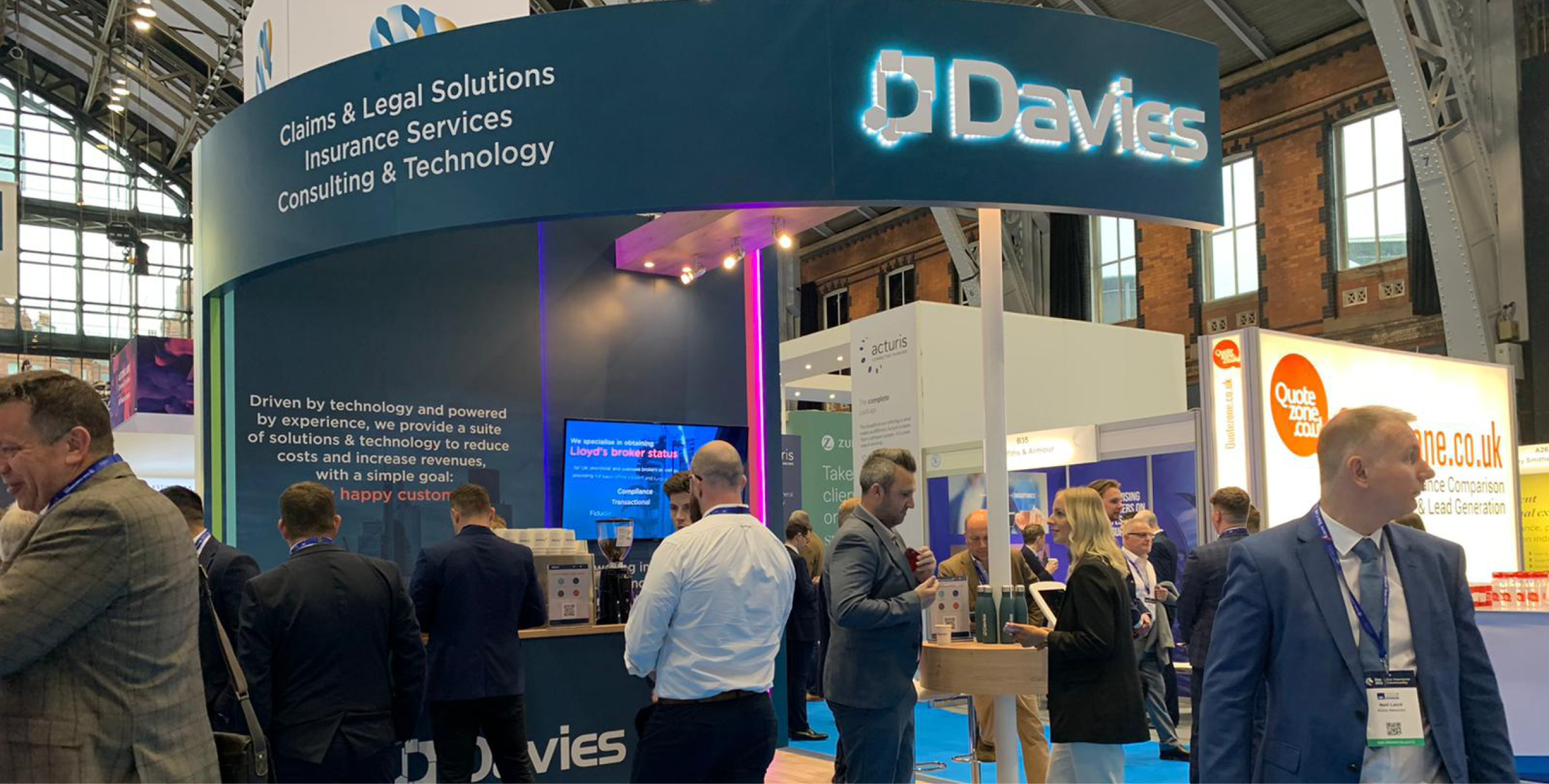Electric transport, lithium batteries, and unregulated chargers; a potentially explosive mix!
4th September 2023

E-scooters have ridden to prominence in recent years, and by 2027, 10.1% of the UK are expected to be active users.
But with any rise, comes the fall, in 2022 there were 1,369 collisions involving e-scooters, with 12 fatalities.
When someone thinks of e-scooter accidents, collisions with pedestrians and vehicles are usually the first that come to mind. But, since 2020, 190 people have been injured in e-scooter battery fires, and at least 12 people have died in suspected e-bike and e-scooter fires in the UK.
Electrical Safety First’s (ESF) recent report on the breakdown of batteries, confirms that in 2022, the London Fire Brigade (LFB) reported 87 e-bike and 29 e-scooter fires across Greater London. In the first half of 2023, on average, the LFB has been called to an e-bike or e-scooter fire once every two days – a 60% increase compared to the same period last year.
With the rise in ownership and a subsequent increase in fires, how can people stay safe and how can insurers confidently determine the true cause of a fire when an e-scooter or e-bike battery is involved?
Lithium-ion Batteries: the risks
ESF’s report states that the primary risk associated with lithium batteries is thermal runaway, as the batteries safety and stability is dependent on maintaining internal temperatures and can be exacerbated with improper storing and handling.
The increase in lithium-ion battery fires can be linked to:
- An influx of cheaper models – As with most successful products or services, a cheaper alternative usually hits the market soon after; The Suffolk Trading Standards reported that in the last two years 13,000 e-scooters and e-bikes have been seized at the Port of Felixstowe alone. These cheap models, contain inefficient Battery Management Systems (BMS) that don’t stop charging when the battery is full, which can cause the battery to catch fire and explode.
- Unregulated chargers – ESF also found almost 60 listings of substandard e-bike and e-scooter chargers for sale through third-party sellers. These unsafe chargers were identified solely through images of non-compliant mains plugs included in the listings and is a sign that they don’t follow the safety standards.
- Flawed designs – The initial designs of e-scooters and e-bikes didn’t account for an electric battery that’s susceptible to damage.
That’s why ESF are urging for newer designs that move the battery from under the footplate, have larger wheels that lessen the impact from kerbs and potholes, and that increases the height of the footplate from a height of 150mm.
A lithium battery fire is a class B fire, so water can actually spread the flames even further. Instead, a foam, powder, or carbon dioxide extinguisher is needed.
Like phones, most people charge batteries at night, which is why half of all lithium-ion battery fires occur overnight, which drastically increases the risk to life and catastrophic property damage.
Lithium battery fire can develop quickly, so occupants should ensure escape routes are kept clear and avoid charging E-bikes and Scooters in common areas such as hallways and landings whilst also ensuring that their smoke alarms work on each level of their homes.
Conclusion
For the insurance industry, the road remains bumpy, as owners and insurers eagerly wait for the government’s regulations. In the future, we may see an outright ban, like in Paris, where 15,000 rental e-scooters were removed from the streets.
Or will we have similar guidelines to the newly introduced acts in New York that requires informative campaigns that educate the public on storing and handling, alongside regulations around sales, and the assembly and reconditioning of lithium-ion batteries.
In the meantime, lithium battery fires will continue, and determining whether the fire was caused by a faulty model or a modification that allows for greater speeds, can help insurers determine their next steps and who potentially is liable.
That’s where Davies’ specialised fire investigators can help, combining investigative skills, knowledge, technology, and scientific evidence to get to the truth of even the most complex fires.
One of our recent loss adjusters who attended a recent lithium battery fire in Manchester, commented:
“Having attended a claim for a large domestic fire, early indications were that the fire was the result of questionable work that had been completed by an electrician that abruptly left site during ongoing renovations. Given the potential for a recovery, we immediately appointed GBB UK.
Upon receiving the report just 4 days after the loss, it had quickly been established that the fire was actually attributed to the failure of Lithium-Ion batteries from an E-bike that was situated close to the electrical cupboard.
In receiving the report and subsequent information so quickly, we were able to save valuable time and costs. This is a perfect example of where appointing the right people at the right time can really help reduce the life of a claim and allow us to use our time more efficiently.
If you have questions about how your business could benefit from this specialised service, contact our Head of forensic investigations, Philip Hoyes.
Related Articles
-
- Article
- Claims Solutions
Davies hires major & complex loss director as it turns focus to supporting insurers with cost of increasing weather related catastrophes
Davies, the leading specialist professional services and technology business, serving insurance…
-
- Article
- Claims Solutions
- Consulting
Davies embarks on global digital transformation project with Sabio Group
Sabio Group, the digital customer experience (CX) transformation specialist, has been…
-
- Article
- Claims Solutions
Davies strengthens its motor claims division with key new appointment amid rising market challenges
Davies, the leading specialist professional services and technology business serving insurance…
-
- Article
- Claims Solutions
- Insurance Solutions
Davies presents next generation customer service solutions amid industry challenges facing brokers at BIBA 2023
Davies, the leading specialist professional services and technology business serving insurance…



